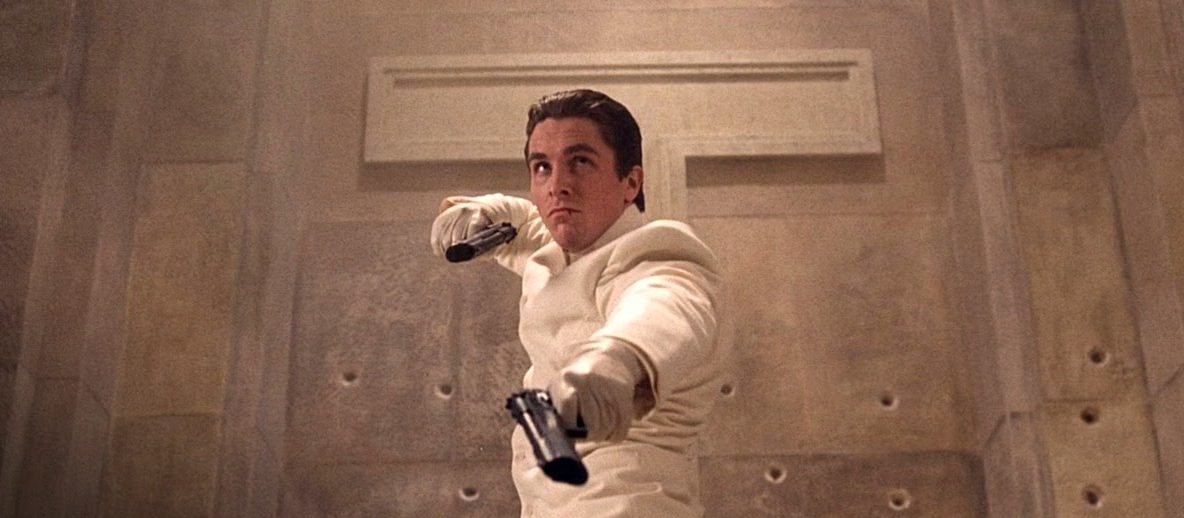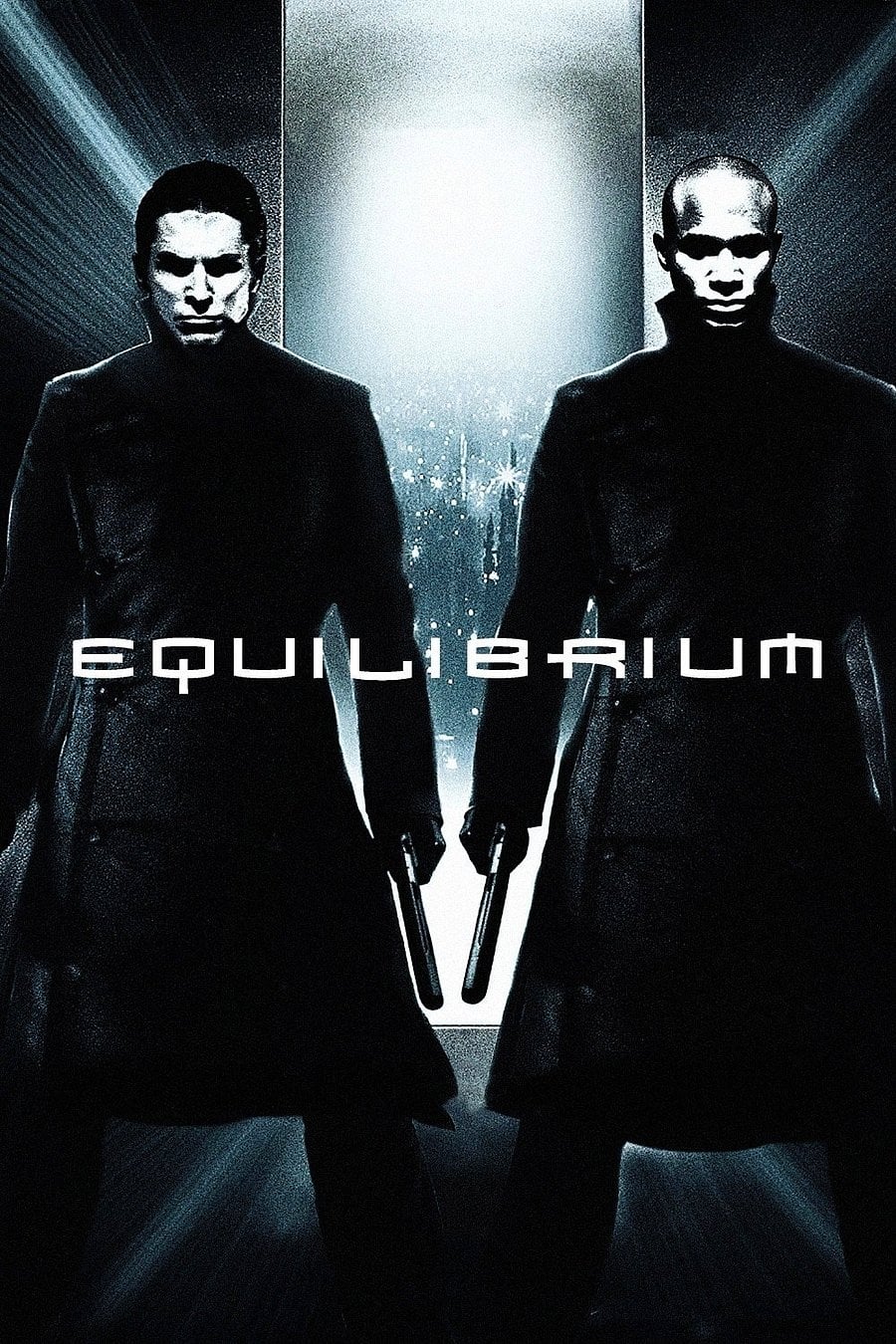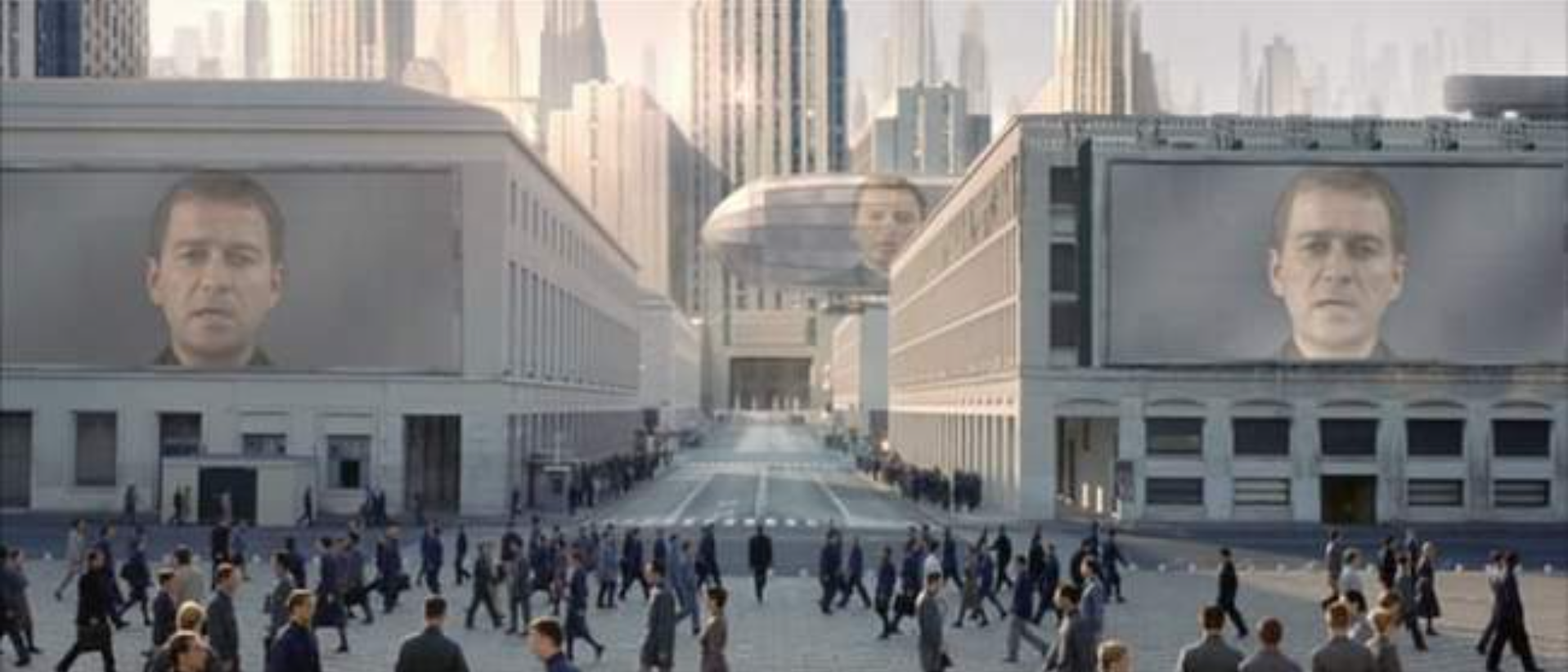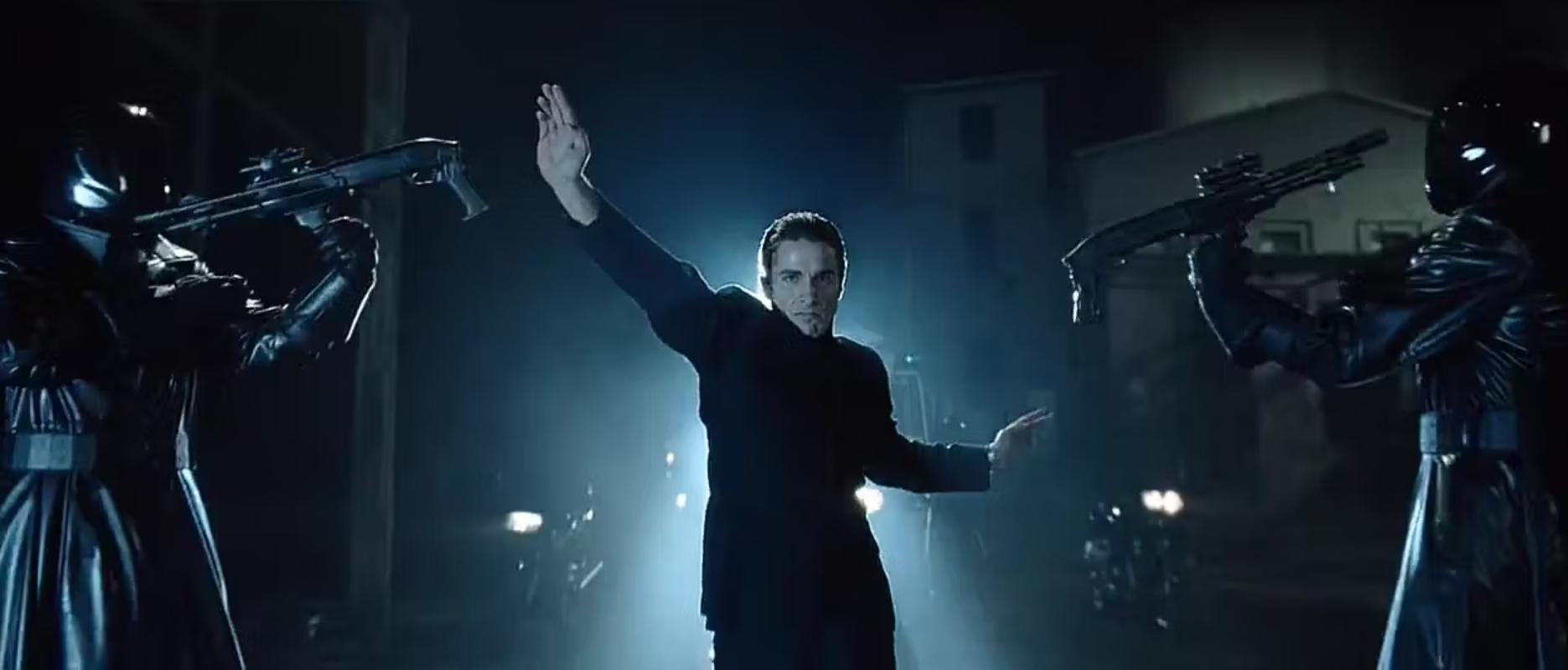

“Why are you alive?”
Probably because I watched them only a few days apart, I couldn’t help but see a connection between Jonathan Glazer’s Under the Skin and Kurt Wimmer’s Equilibrium. Glazer’s film casts Scarlett Johansson as an alien temptress who takes on human flesh and begins to discover the spectrum of human emotion as she studies her potential victims. Vimmer’s centers on a law enforcement agent played by Christian Bale living in a post-apocalyptic dystopian future where feeling has been outlawed. When he accidentally misses a dose of his emotion-inhibiting drug, he begins to experience wonder, sadness, regret, compassion, and all of the sensations that distinguish humanity from other creatures. Just as Johansson’s alien frantically examines her nether regions when she feels sexual desire for the first time, so Bale’s officer peels the film off his window when he senses the beauty of a sunrise. Perhaps that connection is obvious, but I thought it was neat that two entirely distinct premises would lead to such similar thematic territory, if only momentarily. Indeed, aside from that slim tether, the two films couldn’t be more different, with Glazer’s arthouse excursion standing in stark contrast to the Matrix-derived “gun fu” action and anti-fascist uprising of Equilibrium.
In the wake of a third World War in the early 21st century, the survivors sought a way to prevent a fourth, foreseeing large scale extinction if such were to occur. The powers that be reckoned that at the root of humanity’s propensity for warfare was their capacity for feeling. Thus was formed the Grammaton Clerics, a class of elite warriors whose purpose is singular: to rid humanity of its humanity. Trained in the art of “gun kata” and hardened by the regular use of psychoactive drugs, the clerics are masterful and ruthless combatants.

Near the top of this organization is John Preston (Bale), an especially stoic and respected officer who can destroy the Mona Lisa without a hint of regret and watch his wife burn to death without flinching. He lives to eradicate any sign of human flourishing and is a personal favorite of Vice Counsel DuPont (Angus Macfadyen). Despite this airtight system of control, Preston’s partner Partridge (Sean Bean) finds himself drawn to the poetry of Yeats, leading to his death but also to Preston’s own journey of discovery. Soon, Preston’s off the dose and squeamishly going through the motions of his job to keep up appearances, though his new partner Brandt (Taye Diggs) suspects his crime. He sticks his neck out a few times—first to rescue a “sense offender” (Emily Watson) bound for incineration, then to save a puppy from certain death (a sentimental cheap shot if I’ve ever seen one), and later to smuggle contraband material home for his own perusal—but it’s only when he locates the leader of the Resistance (William Fichtner) that things come to a head.

Essentially a hybrid of John Woo–style balletic action and your pick of dystopian cinema (Brazil, Alphaville, 1984), Equilibrium is brazenly derivate. It’s also colossally silly in its narrative logic if you look too close (hint: only a few “sense offenders” are depicted, but every character in the film shows emotion). To be sure, there’s hardly an original element in sight in terms of story, theme, or production, and it refrains from exploring its premise to any provocative degree. It really has very little to say about the human condition or art or culture or anything like that. But it does its borrowing with an assuredness that makes it hard to dismiss entirely, and at the very least Wimmer has chosen to work with solid source material. A steady directorial hand, terrific location shoots, unified art direction, tight editing, stellar music (Klaus Badelt), and inspired acting from a handful of talented actors ensure that even if Equilibrium doesn’t approach the heights of its inspirations that its charming blend of ideas and action never fails to entertain.